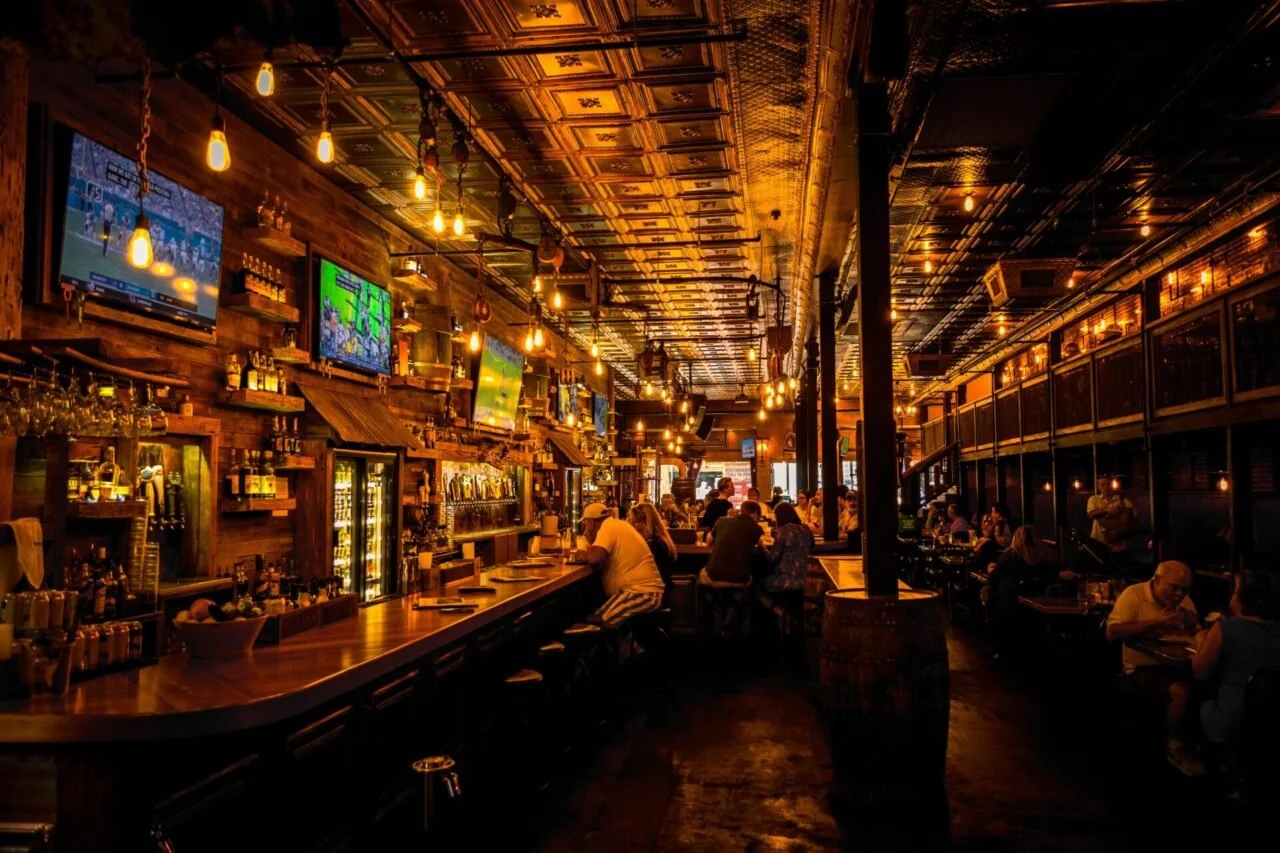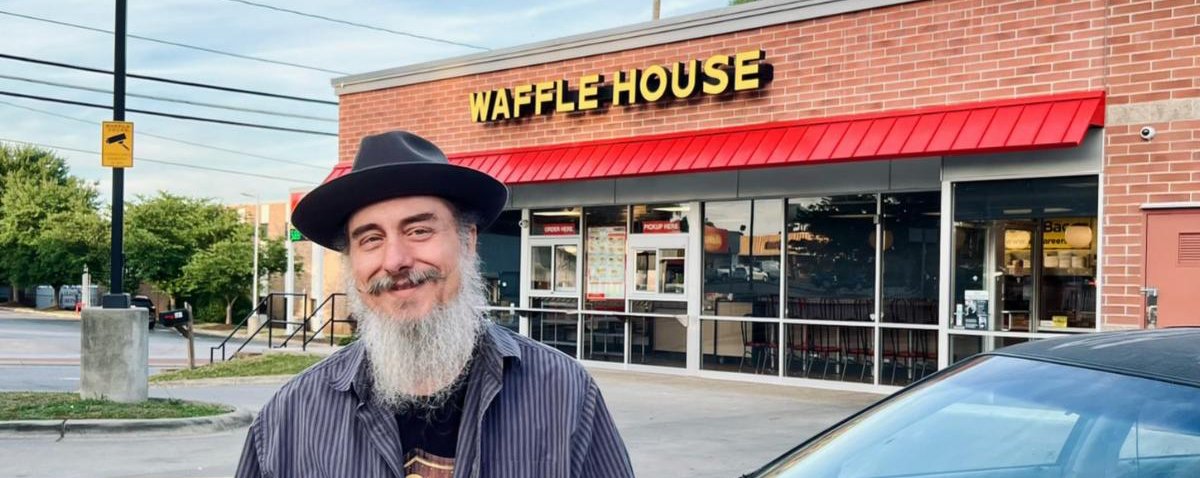This article originally written for ChristianCitizen.us
Image: Sun setting over a lake and a Bible. Photo by Aaron Burden on Unsplash
93.2 miles due east as the crow flies.
One hour and 32 minutes, give or take, depending on the never-ending construction that is Interstate 40.
This is the distance from the place of my birth and upbringing to the town of Wake Forest, North Carolina.
Affectionately known to those in the Tar Heel State as the location of where the “school used to be,” a college became a university when Big Tobacco came calling with the promise of a School of Medicine. A deal and a handshake delivered it back to those who chartered the school, the North Carolina Baptist State Convention. This Southern Baptist Convention (SBC) regional body planned to repurpose the campus and solidify an educational foothold in the Southeast, welcoming a new crop of students to pursue theological studies in the fall of 1951.
Five years later, the last remnants of the former Wake Forest College left the campus for the greener burley leaf tobacco-producing pastures of Winston-Salem. What grew from the fallen school’s stump became Southeastern Baptist Theological Seminary. For the next several decades, both institutions would experience prosperity and growth. They would face challenges, rising to some and succumbing to others.
What transpired for the SBC seminary in Wake Forest in the 1980s and 1990s is well documented. A resurgence/takeover of the conservative variety changed the school, other affiliated seminaries, and the entire denomination; it could be argued that it changed the course of the United States or, perhaps, sped it up in the direction it was already heading. In the end, a winner was declared, but everyone actually lost.
I will make the unforgivable faux pas and assume you’ve heard much of this story in some form or another. There have been enough raised glasses of grape juiced filled with triumph as there have been tear-filled chalices of sorrow collected in solemn remembrance.
Now, I didn’t live this. My parents were not Sunday School-attending Baptists. What family we did have that attended a Baptist church only did so because they had a fallout with the Methodists. My formative years coincided with the schism, yet I never knew it was happening in my backyard. I wonder now how many fringe-attending churchgoers went unaware too? Let’s face it, it’s a tricky topic to address on Easter morning or at a Christmas Eve service. Being blissfully ignorant has its advantages until it bites you in the ass.
My ass-biting moment came years later when I entered theological education. With Southeastern under new moral micro-management, accommodating seminaries and new divinity schools begin popping up to allow landing spots for those distressed of conscience. Be it serendipity or a level of divine providence I’m uncomfortable claiming, I landed at institutions that became such shelters. Classmates whose parents attended the old flagships like Southeastern spoke of their scars. Former professors of such institutions shared experiences with enough prodding, their relived trauma laced with a Titanic warning: nothing is unsinkable.
With the expulsion of Fern Creek Baptist and Saddleback Church, labeled as not fit for “friendly cooperation,” I’m confident that I don’t need to be in friendly cooperation with the Southern Baptist Convention or those that would suppress a woman’s call to preach and pastor.
This is the narrative I inherited as I became more comfortable in my uncomfortableness of being a Baptist. This right-in-the-rearview mirror story of lingering loss continues to shape me. Like an old injury acting up when the dark clouds close in, my spiritual bones ached this June at the news, as unsurprising as it was, of the SBC dispelling a handful of churches over those communities’ decisions to ordain and call women pastors. It would seem the pursuit of what one considers biblical orthodoxy can snap the frailest of freedoms.
Set aside the idea of local church autonomy for a moment, and let’s try to come to terms with an individual’s soul freedom. I imagine this notion of freedom is radical enough to include women. If not, the SBC and any other like-minded Baptists will have to relinquish any talk of a priesthood of all believers and abruptly stop affirming the ability of every person to relate to God without the imposition of a third party. And before any self-back-patting Baptists think they’re off the hook by hanging their ecclesiology hats of affirming women on the loose nail of church autonomy, maybe a closer look at the number of women holding pastoral roles in said groups would quiet the self-congratulatory chest pounding. Or at least move the needle in admitting the current hermeneutical lens needs a new prescription. If that’s the only reason women are supported, there’s a conversation long past due. And suppose women are seen, called, and affirmed by those floating in moderate-lukewarm waters. In that case, other voices can and should join them, and be welcomed with just as much enthusiasm and ease. That’s the kind of pride a domination or fellowship could be proud of, right?
Now there was a time I’d entertain a distinctly different lens than my own. In some instances, I still do, since self-constructed echo chambers, while satisfying, become horridly dull after a while. There was a time, too, when I wanted to be known for what I was for instead of what I was against. I’m discovering sometimes you have to do both. Be that as it may, in the case of women being called to preach and pastor, I don’t believe I can gain anything from the opposing view that says they can’t.
Thinking of this, I was reminded last week of a voice of a friend and mentor. I was still in an idealistic phase of my seminary experience when this occurred. For a few months, a group of rabble-rousing Baptists and other oddballs hosted informal chats at a local on-campus watering hole at Wake Forest University. There was diversity present, but most of us Baptist folks were on the progressive side of things. I came away from one of those meetings thinking about what would happen if we invited someone, perhaps a professor from Southeastern Seminary, to attend a future meeting. They could offer a different viewpoint, and maybe, just maybe, we’d have a chance to experience a truce passing for an act of reconciliation. I shared this with my friend to see what he thought, hoping I’d get an encouraging “atta boy.” My friend, of course, lived the schism. He watched friends and mentors get shown the door. He had seen communities broken and families split. Silence hung in the air between us for only a few seconds until he finally said, “That’s real amicable, Justin. I’m not gonna sit here and tell you not to do it, but for me, I’ve had those conversations. In fact, I’ve had too many of them. And I just don’t have any more left in me. That time has passed.”
With the expulsion of Fern Creek Baptist and Saddleback Church, labeled as not fit for “friendly cooperation,” I’m confident that I don’t need to be in friendly cooperation with the SBC or those that would suppress a woman’s call in any way. No, that conversation, that time, has passed, and I have nothing else to say. Nothing else needs to be heard, either.
I’m sure those who disagree with me would tell you the feeling is mutual. That might be the only thing we agree on.
Here’s to falling out of friendly cooperation.




















